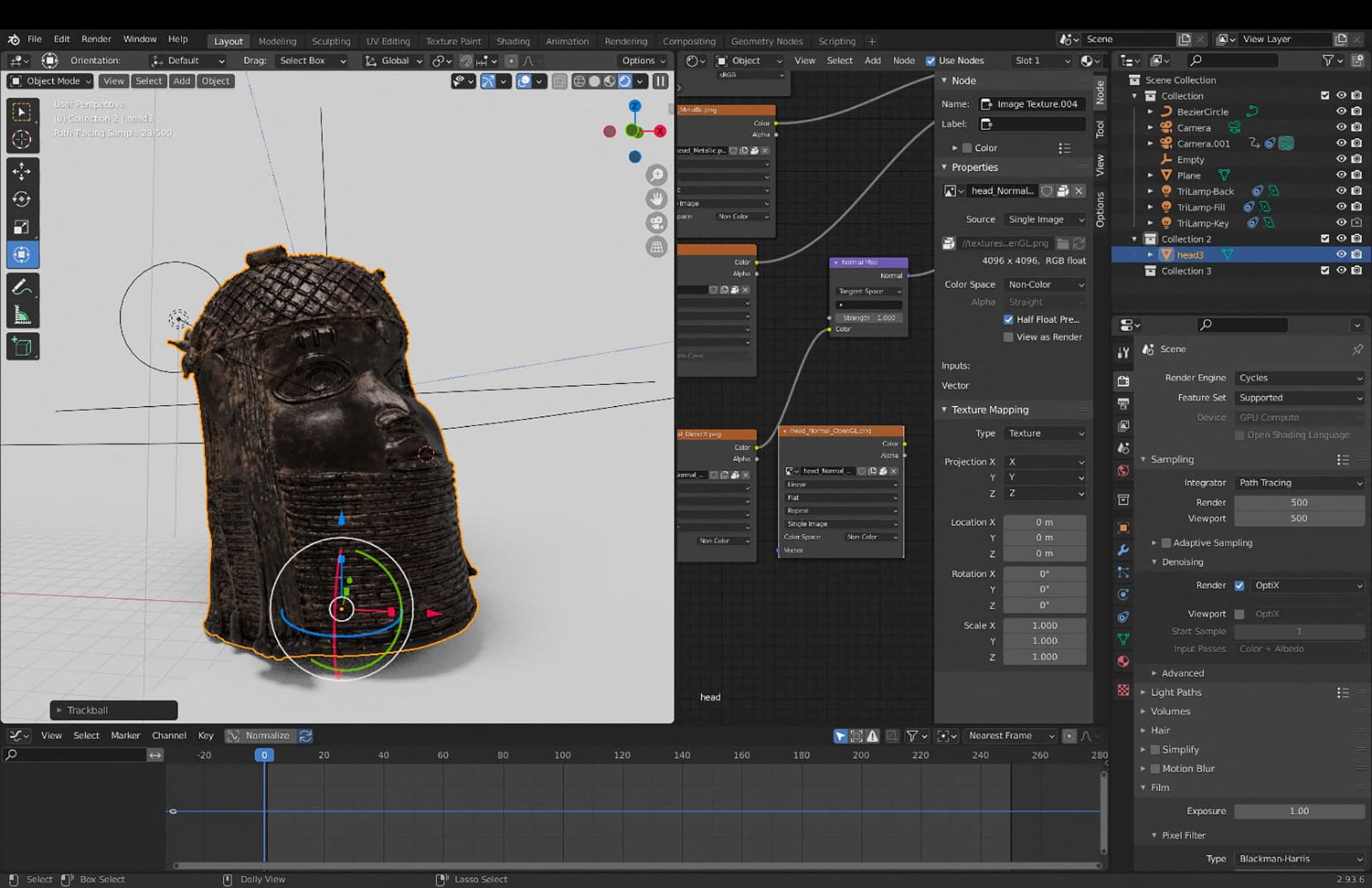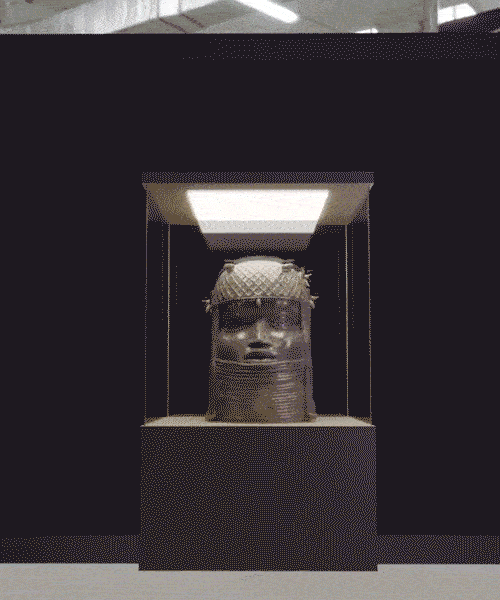Looty is the anonymous collective digitally capturing 3D representations of looted artifacts, repatriating them in the metaverse.
For centuries, museums and private collections around the world have been home to thousands of stolen artworks. With many attempts to return these pieces failing, digital entrepreneur Chidi Nwaubani is taking a different approach: digital repatriation.
‘Relooting’ Art
Nwaubani is the founder of Looty, whose anonymous collective visits museums to digitally capture 3D representations of looted artifacts. The artifacts are housed in virtual museums in the metaverse and repatriated to their places of origin using augmented reality technology. NFTs of the artifacts are also sold, with 20% of the proceeds going to grants for young African artists.
“Even though we are called Looty, we are doing it in a nonviolent way, and also a legal way,” Nwaubani told the BBC.
 The design process. Looty Art via REUTERS
The design process. Looty Art via REUTERS
The first aim of Looty is repatriation, whereby the looted artwork is “returned” to its original owner. The second aim is reparation, aimed at helping artists across Africa, whom Nwaubani believes also had opportunities for inspiration stolen from them by the British looters.
Relooting the Benin Bronzes
The name Looty is taken from a dog that was taken from China and given to Queen Victoria as a gift, and it also references the fortunes the British Empire made by looting.
The first target for Looty was the Benin Bronze collection, which once adorned the royal palace of the Kingdom of Benin in what is modern-day Nigeria. When the British raided the palace of the Benin king, who had consistently defied the British Empire, the looted treasures were distributed to the British Museum as well as institutions across the US, the UK, and Europe.
 Credit: jingculturecrypto.com
Credit: jingculturecrypto.com
Thanks to public pressure, some museums have started returning the Benin Bronzes and other looted artifacts, but Nwaubani is keen to speed up the process. In May 2022, exactly 125 years since British Empire launched its expedition to Benin City, Looty was launched.
The Rosetta Stone
Looty recently targeted the British Museum for a second time to ‘reloot’ the Rosetta Stone, a 196 BC granodiorite stele inscribed with a decree issued in Egypt. Donning hockey masks, Nwaubani and Looty co-founder Ahmed Abokor, a Somali Swedish creative director, joined Egyptologist Monica Hanna to carry out the digital heist.
According to the New Yorker, the group will rendezvous in Egypt and use location-based augmented reality to return the 896-megabyte artifact to Rashid, a port city near Alexandria, where passersby can view it on their phones.
Inspiring Africa’s young artists
Nwaubani has global plans for Looty. Not only does he hope to see the return of every single piece of artwork looted from Africa by colonizer, but Nwaubani hopes that making theartwork on Looty will inspire African artists at home.
“If you live in maybe Benin and you want to be inspired by the artwork that comes from your ethnic group, first you need to apply for a visa, then buy the ticket for a plane, get to England and book hotels. You then go and view the artwork. There are not many people who are going to be able to do that,” Nwaubani told the BBC.
“I want to build our own metaverse where these pieces will live and can live.”

